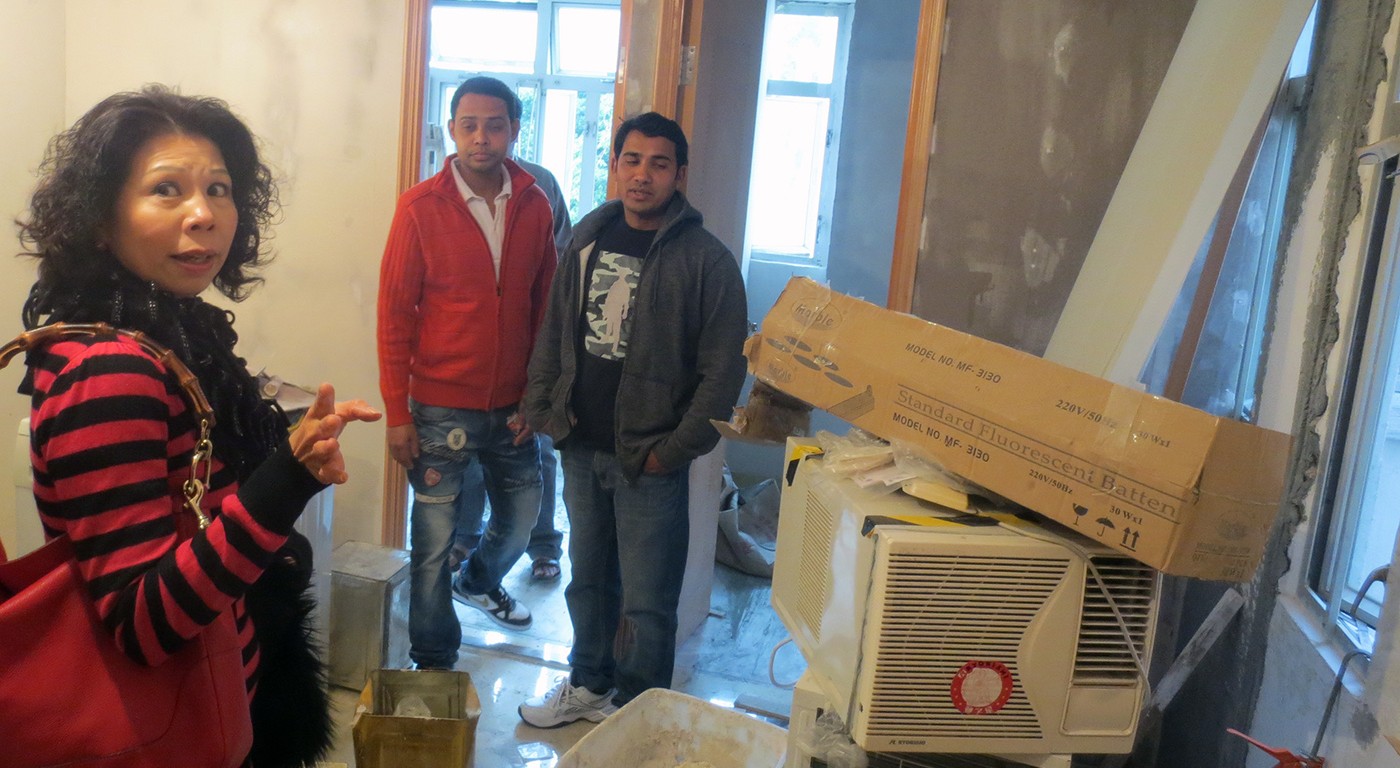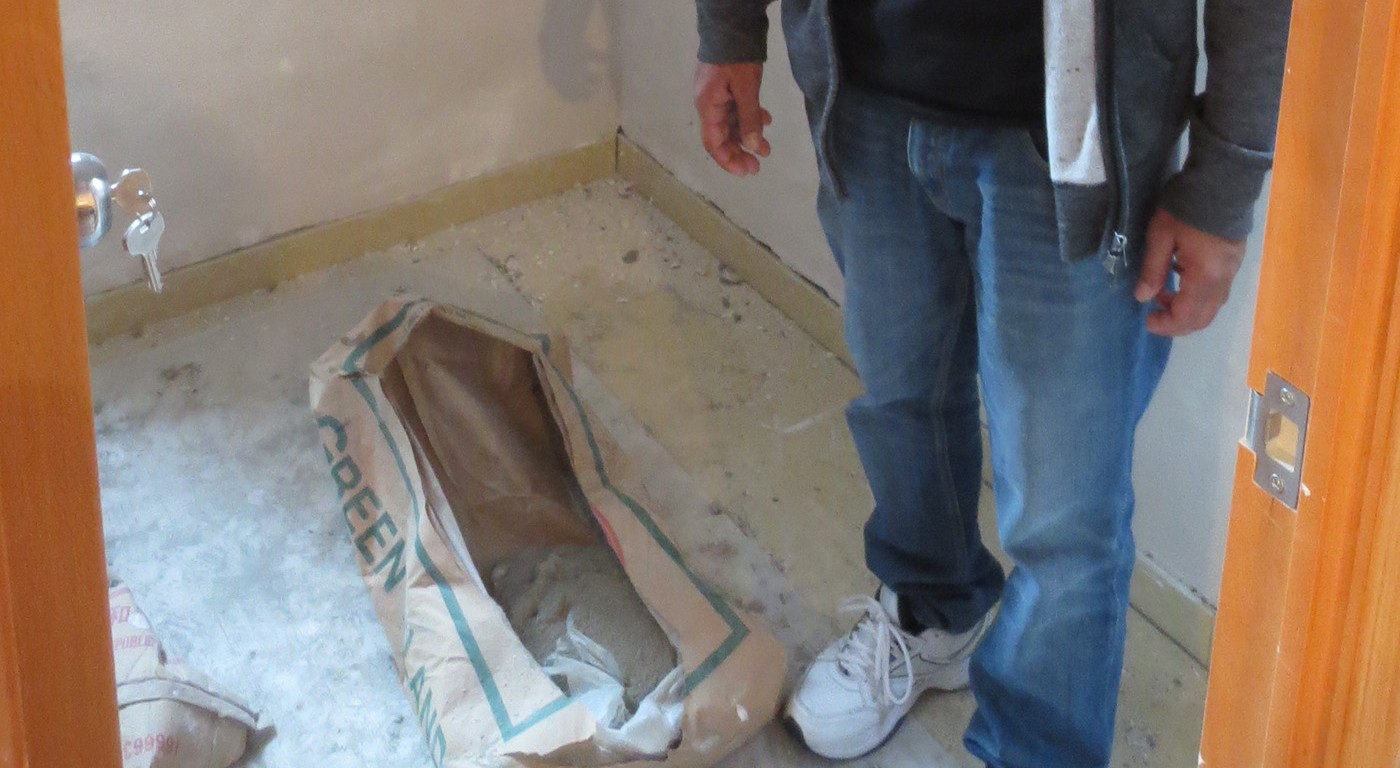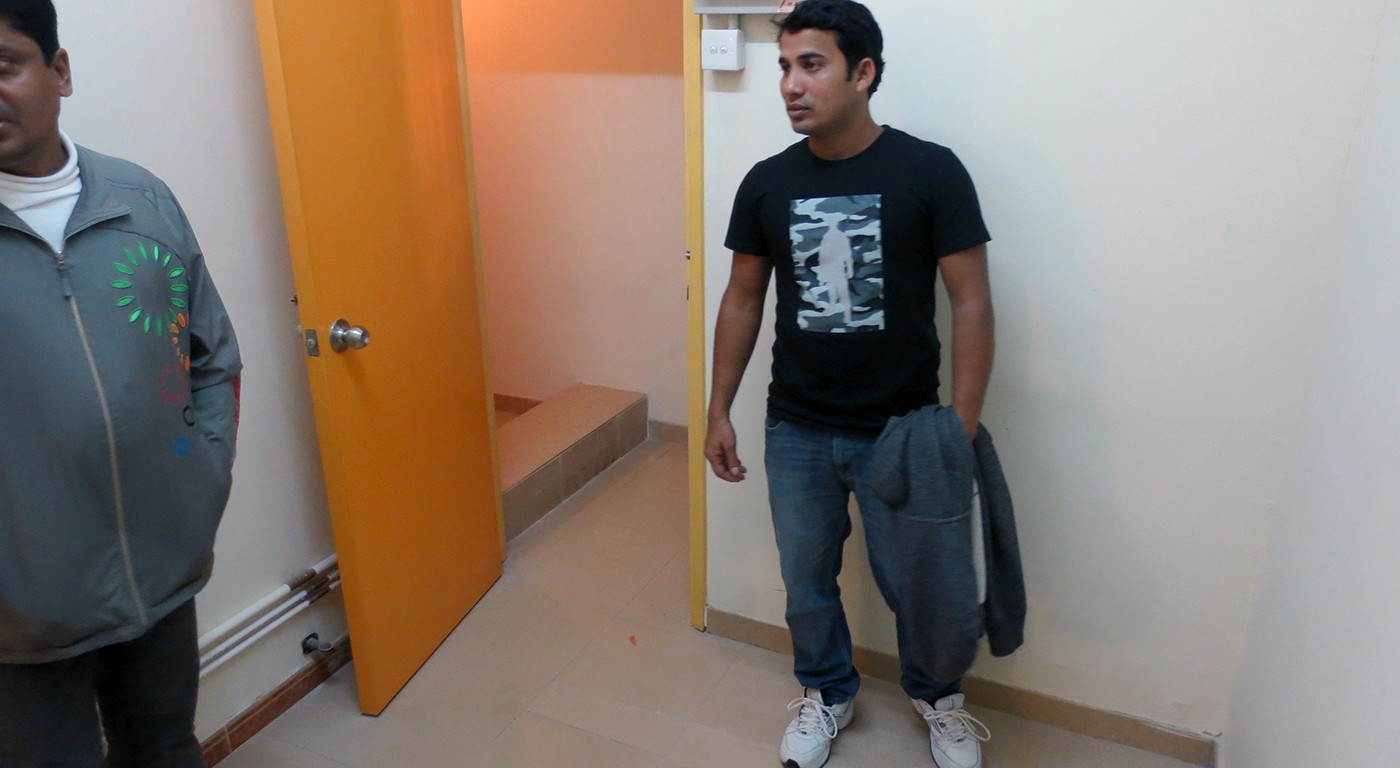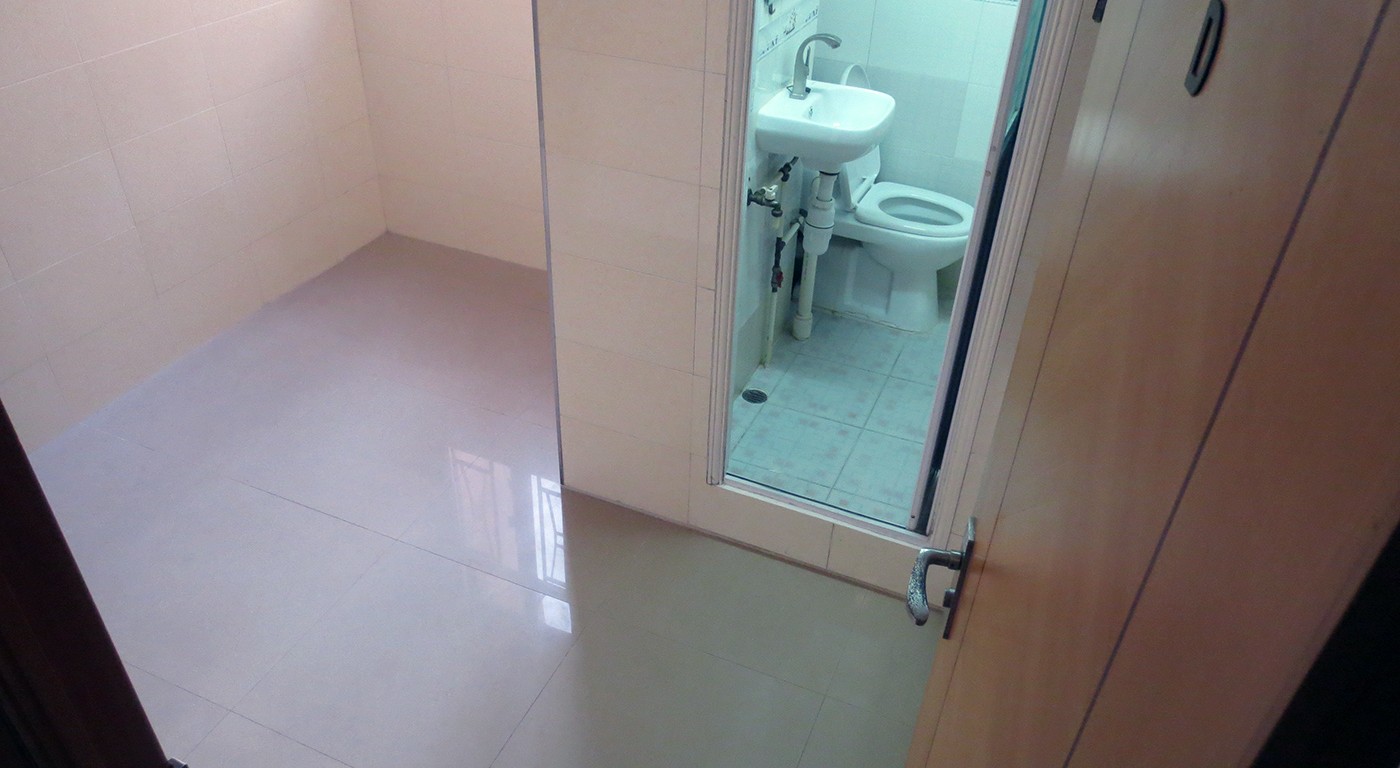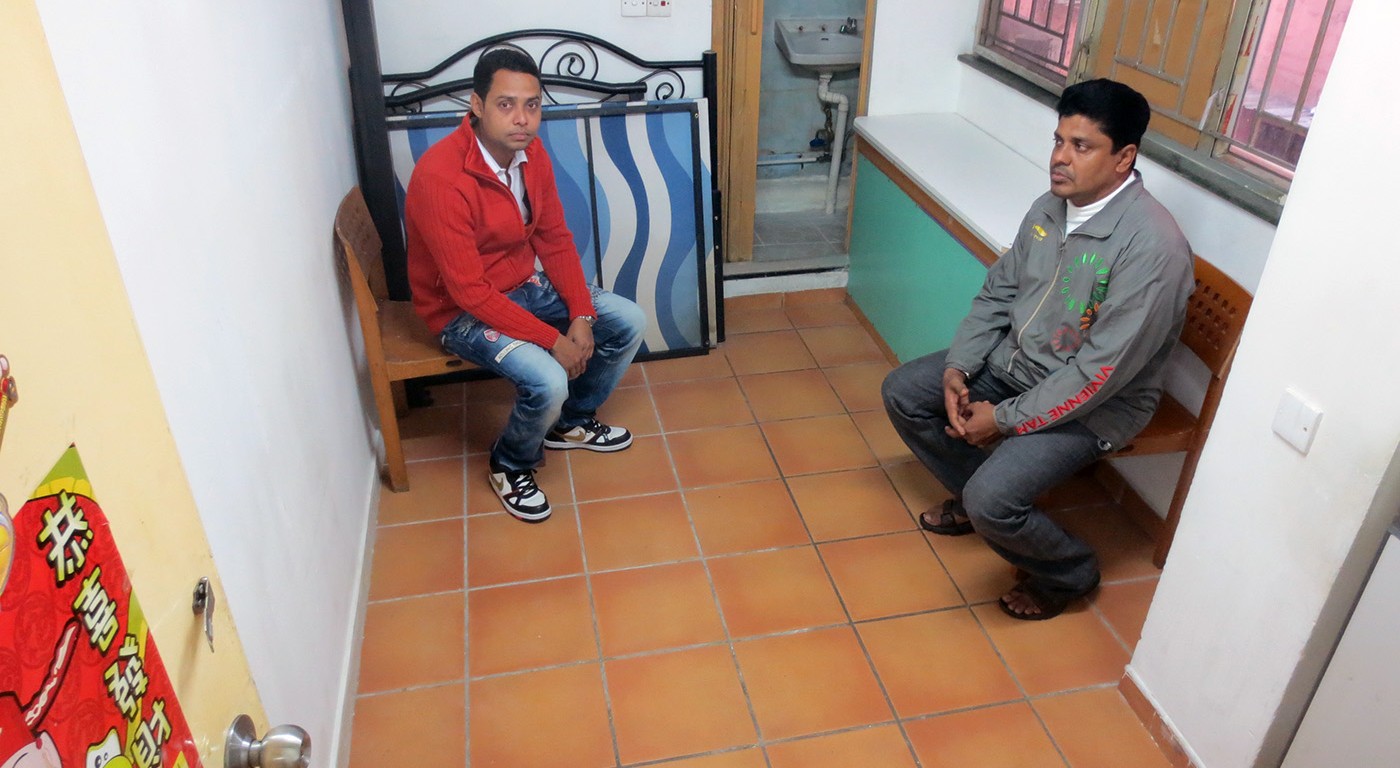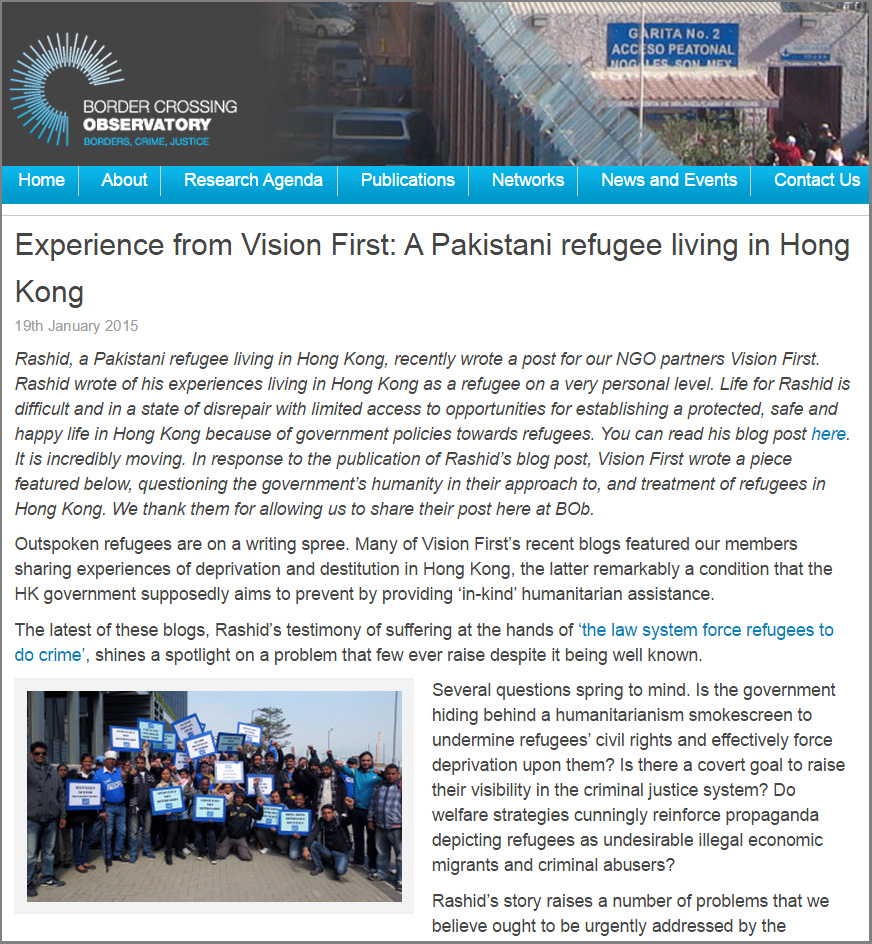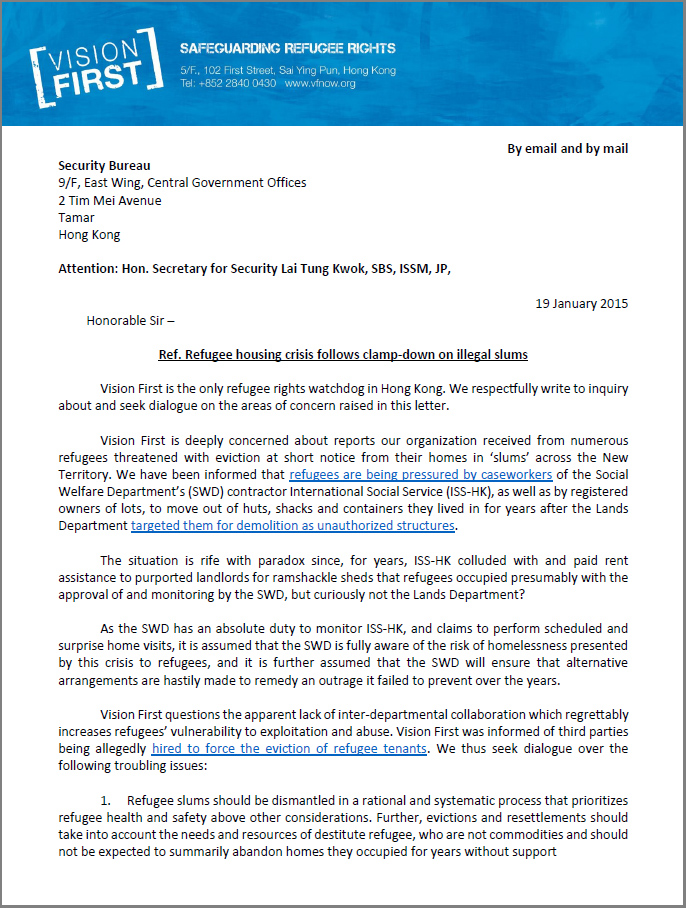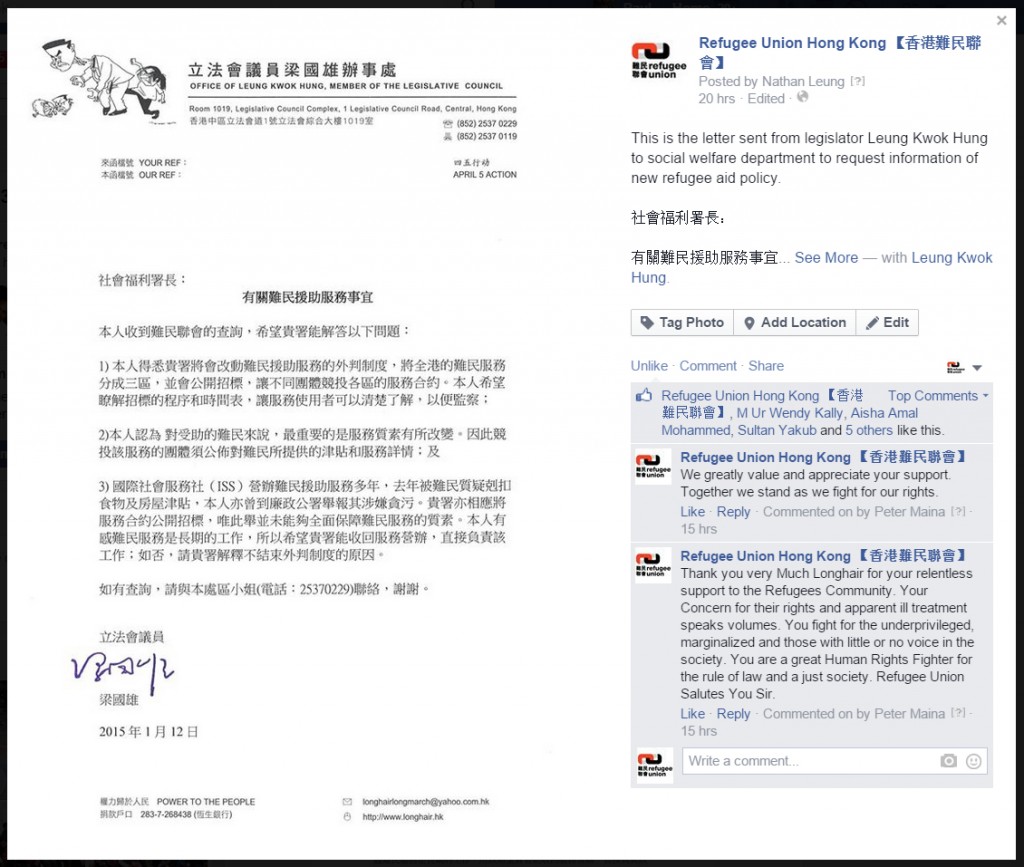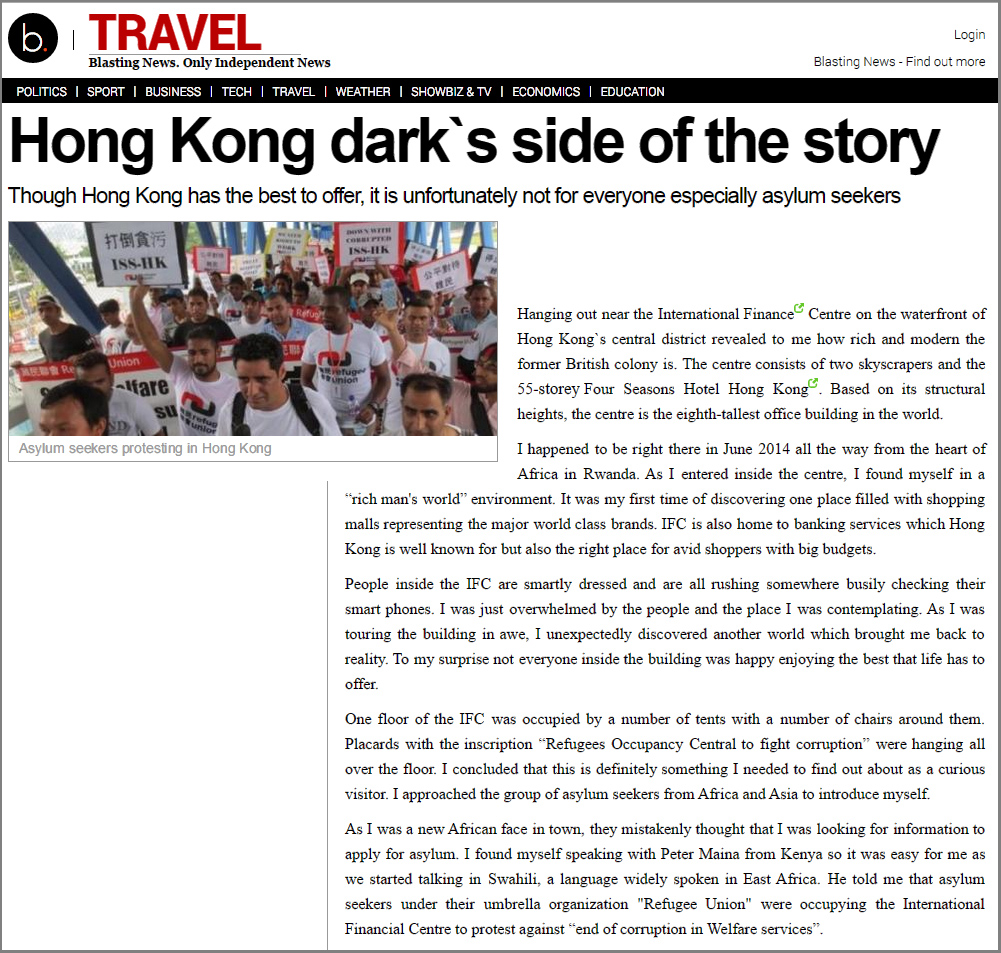Stop forced cohabitation
Jan 21st, 2015 | Housing, VF Report, Welfare | Comment
Under the heading “WE BELIEVE”, our website defines a key principle held for its fundamental and universal value. It is worth repeating, “Vision First is a proponent of the view that every asylum claim must be approached on the premise that it is genuine … No adverse inferences must be drawn … asylum seekers should benefit from the rights and privileges enjoyed by all citizens – as economic expectations are hardly incompatible with seeking asylum.”
In 2012 and 2013 Vision First was informed that hundreds of Bangladeshi refugees in remote slums were forced to choose between “rent assistance” and “food assistance”. Refugees were informed that they could not have both and should therefore share huts and emergency rations with conational.
Before learning about human rights and state duties, uninformed refugees didn’t know any better and such a shameful arrangement was regrettably widespread. In our experience other nationalities were not subjected to this biased treatment that apparently did not occur in urban areas.
Today Vision First reports that refugees are sometimes being forced to cohabitate in Kowloon where the lousiest, cheapest subdivided rooms cost more than 3000$. In principle there is nothing wrong with refugees living together, a practical solution to mitigate welfare constraints when friendly cooperation exists.
The process however degenerates into cruel and inhuman treatment when cohabitation is coerced. “Find a friend to share a room or ISS will not pay rent” is hardly a solution. Several refugees reported requesting assistance to avoid being homeless in winter nights only to be told to find somebody to share a room with. They emphatically informed caseworkers that they knew nobody suitable and were sleeping on the street around the Cultural Centre.
How does a government contractor ignore the plight of certain refugees when rooms in guesthouses are available to other nationalities? Besides, homelessness is terrible for anyone, irrespective of country of origin.
A referral from SWD for a non-refoulement claimant should only be considered by the state of destitution, connections and resources of the person concerned. Other factors would shift public welfare into a highly undesirable form of migration control.
A refugee homeless since 22 December said, “I told my officer that I am sleeping next to pillar number 2 at Star Ferry. Several times I told him that I am homeless. I and freezing because I don’t have a blanket. I begged for a guesthouse but was told that I should find somebody to rent a room together. But I don’t know anyone and even if I start looking for a room it will take several days … and nights!”
There are good reasons why we shudder at caseworkers uttering the words “on a case by case basis” that generally signal an abdication of duty and shunning of responsibility on the one hand, and on the other a failure to have regard of the best interest of refugees with reasonable consideration of their means.
Vision First will report several incidents of forced cohabitation to the Social Welfare Department in hope that recommendations will be made to stop such shameful practices. For those we encounter in outreach the problem will be solved, but how about those we don’t?
Later we can only shake our heads when egregious treatment is excused with the other highly abused expression, “It was a misunderstanding!” Refugees are annoyed by this excuse and underline that honest misunderstandings work both ways – sometimes you should get too much!
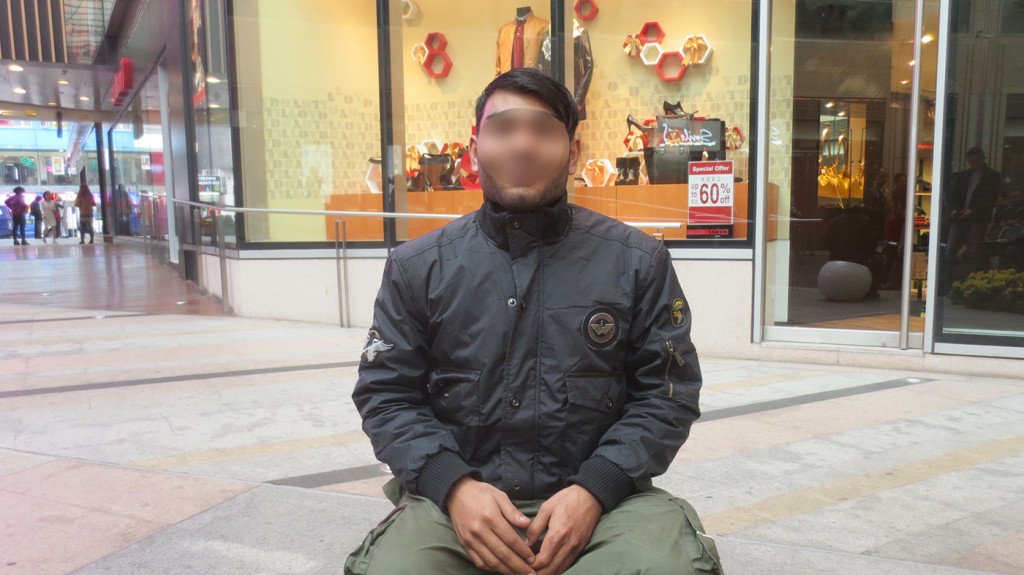
Parameters must change to tackle the housing crisis
Jan 20th, 2015 | Housing, VF Opinion, Welfare | Comment
Over the past few days Vision First inspected rooms available at several real estate agencies in Yuen Long, presumably a cheaper district than Kowloon. At one such agency a veteran estate agent lady asked “Why so many refugees come here?” That’s a legitimate question.
Suddenly evicted from slums where they lived for years, refugees are hopelessly touring agencies recommended by caseworkers to find alternative accommodation. Vision First accompanied them on visits to the cheapest units (locally called “tou fong” – suite-room), subdivided bedrooms with a minuscule toilet and a shelf for sink and kitchen top. For the purpose, older 500 s/f apartments are remodeled into four 100 s/f units accessed through a shared corridor. Such small units are generally clean and at 3500$ are acceptable bachelor flats for those who can afford them.
However, the arrangement becomes unpleasant when refugees on a 1500$ rent budget are compelled to cohabitate. Couples can cope with tight conditions, though a boyfriend observed, “I can share with my girlfriend, but she is not my wife. If we breakup who pays the rent? How one person can pay more than 3000$ by himself?”
Coping with stringent conditions, a group of five Pakistani share a 400 s/f apartment for 6000$ – two bunk in two tiny rooms, one sleeps in the lounge. But the agent complained, “Too many people! If one man has trouble [arrested by police or immigration] the others cannot pay. If one leaves [removed or deported], it is hard for them to find another [replacement], so always have trouble.”
Another agent went on a rant, “The cheapest room is 3200$ but landlord said no sharing. If too many people stay it is dirty. Many landlords have difficulty to get rent and utilities paid. Landlords are afraid. They don’t want to say why, they just refuse to consider.”
Further, destitute refugees are unable to make repairs and crowded cubicles are subjected to more than the ordinary wear and tear. A landlord complained of a broken sink, door and flooring, though it is hard to imagine high quality fittings are used in super-budget subdivisions. These are not concrete dormitories designed for heavy occupation, but inexpensively cubicles for single occupancy.
“Are you Pakistani? We don’t rent to Pakistani” snarled an agent to some Bangladeshi. Racism apart, when thousands of destitute young men squeeze into the crammed low-end housing market, attrition is unavoidable not only with landlords and agents, but also with local residents.
This leave us to ponder:
First, speaking with several estate agents, it became clear that landlord aversion towards refugees (never identified as such, but rather as ‘foreigners with ISS assistance’) was the principle obstacle. There was no issue renting to Vision First staff, but agents warned, “You cannot cheat. We can rent the room to you, but not to them. If the landlord discover they live there that is not honest for us.”
Second, stigmatization was widespread, agents would phone landlords to inquire about vacant rooms only to be blatantly told that “those black people are not accepted”. It was surprising to hear this repeated again and again. Also in the slums a resident grumbled, “Too many people in one room. It’s too noisy and I cannot sleep next to them. They shouldn’t be crammed together like that. It’s dirty.”
Third, agents showed our group tou fong ranging between 3200$ and 4500$. They were all in acceptable condition, some even nicely decorated. Rooms for 2000$ no longer exist in Yuen Long and even 3000$ rooms are hard to find and none were vacant. The limited supply of 3000-4000$ rooms is insufficient to accommodate the scores of refugees being evacuated from the slums.
Finally, the refugee housing problem cannot be solved without changing parameters. If refugees are to be banned from working, then they are destitute and deserve full support. It is illogical to impose a 1500$ rental ceiling that compels strangers to bunk in cramped spaces, eventually quarrelling and splitting up. This wastes government-funded deposits and exasperates landlords and agents, other than reinforcing the stereotype of refugees as dirty, noisy and foreign to Hong Kong society
It should be accepted that refugees must work to pay rent surplus, utilities and supplement inadequate ‘humanitarian assistance’. There is no point sticking heads in the sand! Raising the rent ceiling to 2000$ would just push the problem a few months forward, without resolution. Vision First reiterates that refugees ought to be allowed to work to make ends meet.
Experience from Vision First: A Pakistani refugee living in Hong Kong
Jan 20th, 2015 | Immigration, Media | Comment
Letter to Security Bureau on slum crisis
Jan 19th, 2015 | Crime, Housing, VF Opinion, Welfare | Comment
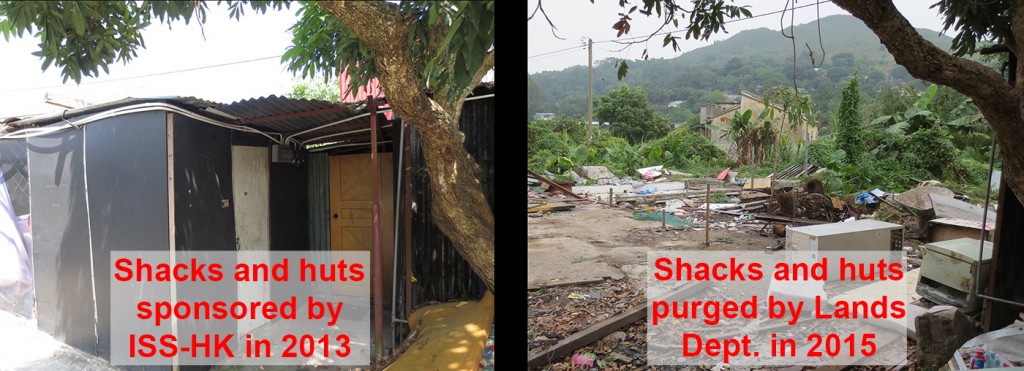
Refugee Union speaks on Citizens Radio
Jan 18th, 2015 | Media, Refugee Community | Comment
Link to recorded show on Citizen Radio on 15 January 2015
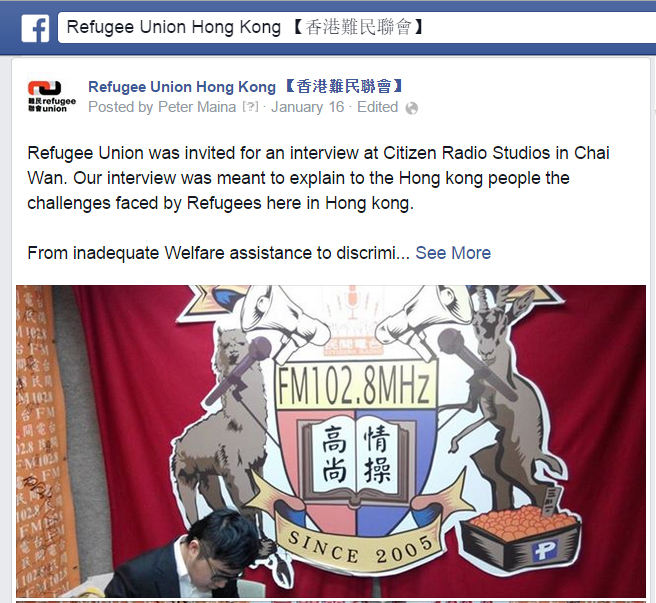
VF Opinion: It’s time for temporary work permits
Jan 16th, 2015 | Housing, VF Opinion, Welfare | Comment
Vision First was informed that on 15 January 2014 a delegation of refugees protested at the Social Welfare Department head-office against unrealistic rent assistance levels that pushed their backs against the ropes.
As many refugees are now forced to relocate from slums in which they lived for years, these same refugees face a compelling dilemma. With rental market prices on the rise and government rent assistance generally no more than $1500, where to find affordable rooms?
“ISS gave me a list of estate agents who showed me small rooms as big as a single mattress with prices between 3000$ and 4000$ a month. Also many wanted cash payment because they don’t want to work with ISS”, lamented an irate refugee who has lived in Hong Kong for 8 years.
Vision First expects that, since reliance on refugee slums has come under fire, the housing crisis will rapidly deteriorate as hundreds of claimants are forced into homelessness by failed welfare policies.
Besieged SWD officers listened carefully to the refugees, though clearly out of their depth as far as solutions were concerned. An SWD officer confirmed that, “in the past few months ISS was trying to resolve the slum problem”. A senior officer repeated a canned defense line, “We will raise your concerns with ISS and ask them to mobilize all their resources to find a solution.” But what resources are available to constrained caseworkers?
Fresh solutions are required to resolve a matter that brings great shame to Hong Kong. It is time for Hong Kong Government to pragmatically acknowledge the absurdity of so-called humanitarian assistance that fails to adequately house refugees in our expensive city. This utterly disappointing and unpleasant situation created by unrealistic rent levels ought to be urgently reviewed.
Vision First strongly recommends that refugees be allowed to work for the years it takes Immigration Department to determine asylum claims. It is sadly pathetic that every two years refugees must protest to raise welfare levels that fall hopelessly and predictably behind inflation. Further, temporary work permits would certainly benefit Hong Kong, as research demonstrates that refugees do not steal jobs from residents, but rather contribute extensively to raising their income.
Let’s be honest. If it is policy to hold thousands of refugees in limbo while claims flounder in bureaucracy, then it is only fair that claimants be allowed to earn a living to supplement unacceptably low assistance levels. This wouldn’t be inconsistent with the token welfare safety-net that forces destitute, old and needy citizens to eke out a subsistence living on their knees.
The Refugee Union presented this protest letter to SWD and Security Bureau
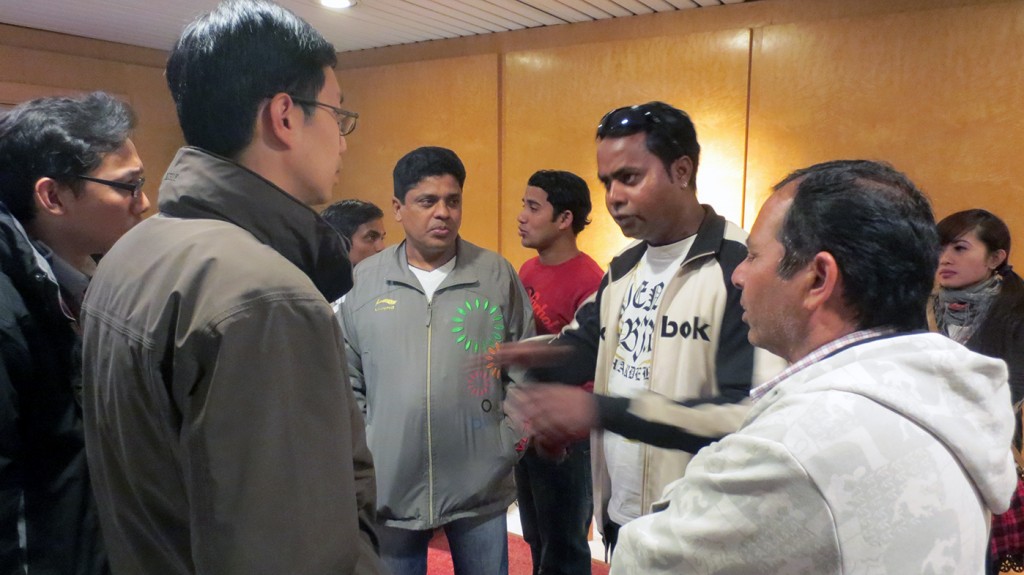
Mother and baby abandoned in the street
Jan 15th, 2015 | Housing, VF Report, Welfare | Comment
12 January 2015. It’s a cold night! Single mother Siti endures the worst case scenario. She lost a friend’s support and ISS-HK failed to assist. She is in Fung Cheung Road Garden, near Yuen Long MTR. Her 5 month daughter cries. She prepares to sleep on a concrete slab. Nearby is a public toilet she uses to care for her baby congenitally sick since birth.
Vision First was informed that mother and child are service users of ISS-HK and their emergency situation was brought to the attention of their caseworker (name withheld) over several phone calls that afternoon and evening. Siti had been homeless for several weeks, because she is unable to secure a room for the 2250$ budget she offered. A refugee family supported her until the landlord complained.
The mother reports she called her ISS-HK caseworker for emergency assistance. She suggested that a room in a guesthouse be provided for a few nights as she continued the challenging search for a permanent home – prices for single room 3000$ and up. Apparently her request was turned down. She said she was told that guesthouses are for men only. Gender discrimination?
Siti reports that the caseworker offered assistance at the ISS-HK shelter in Central instead. However, the mother lamented she had no money for the MTR fare, about 27$ and pleaded in the name of her sick baby. Regrettably her implorations fell on deaf ears and the caseworker hung up the phone. Mother and baby then slept rough on a very cold night.
Disappointing it is when those assisting the vulnerable come short on empathy and compassion. There might be stringent welfare rules against settling women in guesthouses, but surely they are overridden by civility rules against abandoning mothers and babies in the street in winter. Personal discretion and concern, if not professionalism, should prevail.
Caseworkers may possibly find themselves overwhelmed by crises that don’t neatly follow the service arrows in the colourful flow-chart before their eyes. Calling friends is often suggested as an alternative to destitution, but is it right to expect destitute others to provide aid? What if they are not available, or phone are off because they are not afforded credit? Public shelters in winter might be full or closed. Transportation money is not provided even when a solution might be in sight. Then perhaps frustration prevails before pressing demands that have become all too common.
Such situations are dangerous failures in service, as well as daunting failures in humanity.
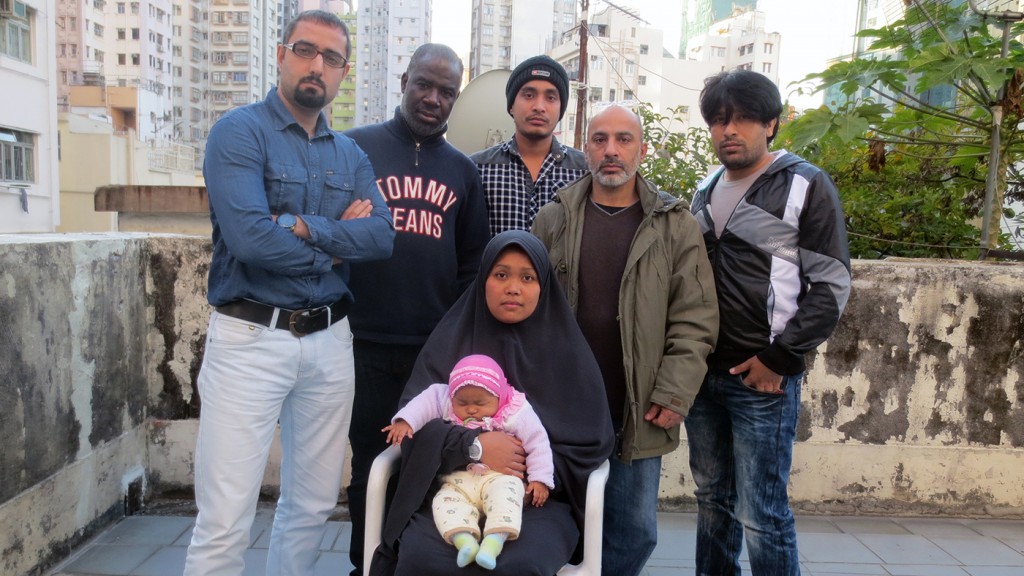
Lawmaker “Longhair” letter to SWD
Jan 15th, 2015 | Food, Housing, Refugee Community, Welfare | Comment


